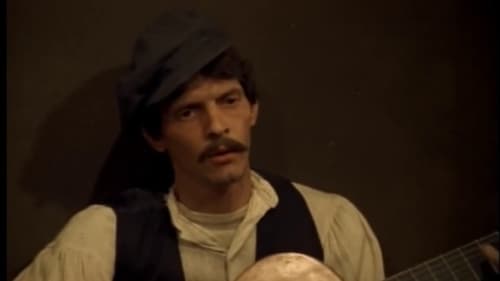
Music
In late-1960s Athens, a student forms a strong friendship with a group of young dreamers, against the backdrop of the military dictatorship.

Cinematography
In this supernatural-themed romance, a German woman in the between-wars period is being initiated into some kind of esoteric/psychic order and learns at that time that her ideal mate won't even be born for quite a few years. By 1936, she has moved to Greece with her Greek husband, and there she meets Alberto, a very young Greek man, a Jew, who is evidently the man she has been seeking. They are able to read each other's thoughts and do so in the midst of a sexual encounter. Despite the boy's attraction to her, he spurns her due to her age (she is forty). She commits suicide and is born almost immediately as someone able to protect her ideal mate from the Germans. Later, as a young woman, she again has a liaison with Alberto, who again spurns her due to their age differences. Flashbacks indicate that this situation has been part of their lives for many incarnations.

Cinematography

Cinematography
In the face of an irreversible disaster, Costas Vrettakos chronicles the fears, the responsibility, and the hopes of both the scientific team and the technicians during the restoration of Acropolis, from 1973 to 1986.

Director of Photography
A young man, Kostas, together with two friends, sets for a journey on a sailboat, looking for something precious that his father hid on one of the Aegean islands during the years of Greek Resistance and Civil War.

Cinematography
During its 85-minute running time, this jarring experimental film takes a no-holds-barred look at the way women have been treated and depicted in Western art.

Director of Photography
The wife of an alcoholic and mother of four (Toula Stathopoulou) is a factory worker in Corfu at the beginning of the 20th century. A fallen noble man who has fallen on hard times (Stratis Tsopanellis) wants to marry her eldest daughter (Anny Loulou) and take advantage of the family's meager earnings. He kidnaps the not-unwilling girl, and argues with her mother about the dowry. But the girl refuses to marry him when she wakes up to the fact that he is only looking out for his own interests. She then decides to start working in order to earn money to raise the child she is expecting. The film is an adaptation of the novel 'For Honor and Money' by Konstantinos Theotokis.

Director of Photography
In 1972, to provide Athens with water, a bold project began, involving the creation of an artificial lake from the water of Mornos River, leading, however, to the destruction of the Velouchovo village, and the ancient town of Kallipolis.

Director of Photography
Five friends (representatives of the Fifties generation) now in their forties, get together after many years of silence. One shows up from jail, where he has been entering and exiting for years, the other comes from a series of "accidental" murders, another leaves his wife and kids, the fourth one is a wonderer, and the last one, the girl of the gang, comes from a lunatic asylum where she has been hiding for years... All of them are outcasts, tortured from barren love affairs, wounded from the deaths of their beloved friends and betrayed by the politics of their times. They hopelessly try to reconstruct the gang of their puberty, but the revolution is lost... Now, each in his own way, will progress into a journey of death, thus opening a new chapter in the history of their generation.

Cinematography
The city of Athens in an enchantingly surpising and self-referential deciption: the streets, the buildings and the people speak amid a newly established freedom and refer back to Liaropoulos' two previous films: A Letter from Charleroi (1965) and Athens, City of Smiles (1967). Liaropoulos writes a personal but universal letter, showcasing the city's most beautiful facets.

Director of Photography
Michalis returns to the tobacco growers of his rural village after having spent some time in the city and persuades them to form a collective, rather than suffer the poverty-inducing prices they are paid for their crops by tobacco brokers. They agree not to sell to any of the brokers and start to form a farmers' group. When one of the farmers breaks the agreement and is found dead, Michalis is accused. However, rather than expose the farmers' plight and give publicity to the brokers' greed, the motive the government gives for the killing is thi asimanton aformin, for unimportant reasons.

Director of Photography









